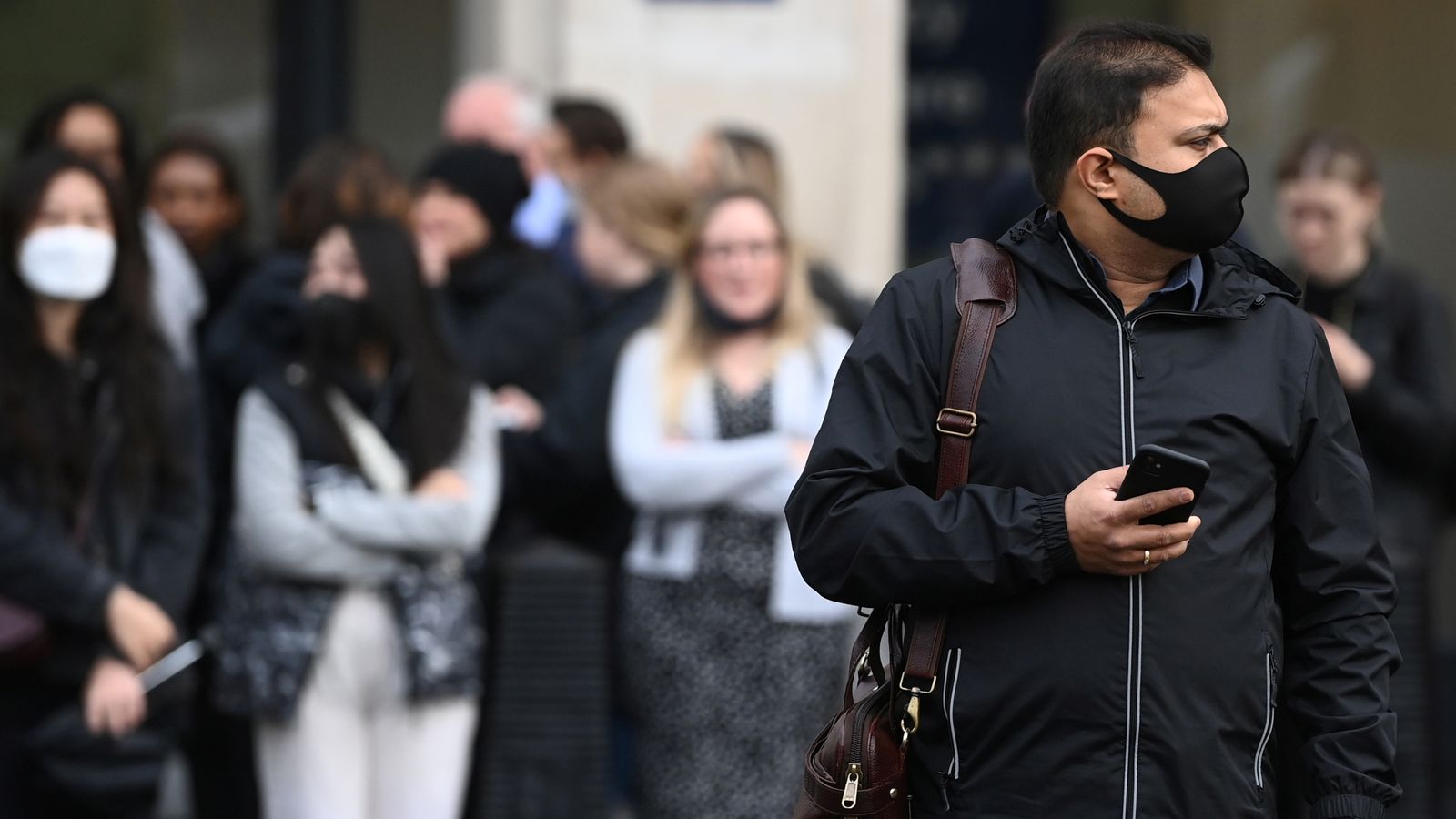The lack of social distancing and mask wearing is proof of “compassion fatigue”, according to a chronically ill woman forced to stay at home for 19 months.
Kimmy Soko suffers from a number of serious conditions that leave her with a weakened immune system.
It means she’s understandably terrified of catching COVID-19.
“Me getting COVID is literally the end of me,” the 29-year-old said.
“I want to live a long life. I have goals, I have dreams. I live in my house and I cannot leave because I know that there isn’t that protection.
“The numbers have not changed, you know? COVID is so virulently spreading, and it’s scary.”
And the failure of so many people to adhere to what she describes as “common decency” is frustrating.
COVID-19: Children as young as five to get vaccine within weeks, White House announces
Russia COVID-19 cases hit record daily high as deaths spike with infection surge and sluggish vaccine rollout
COVID-19: What are the different types of coronavirus test and how do they work?
“There’s compassion fatigue,” said Ms Soko, who runs her own disability training and brand strategy business.
“The numbers aren’t getting us as riled up emotionally, where we feel the civic duty to do our part as we did at the beginning.”
The legal requirement to wear masks was removed in mid-July for people living in England.
But cases have been rising since mid-September and there are warnings from the NHS Confederation that the health service could be heading for the most challenging winter on record.
Wednesday’s figures revealed close to 50,000 daily new cases, with the government warning that that figure could double in the months ahead.
And increasingly, the message is being reinforced to take personal responsibility when it comes to keeping others safe, including from the health secretary.
Please use Chrome browser for a more accessible video player
During Wednesday’s Downing Street briefing, Mr Javid said: “If not enough people get their booster jabs, if not enough of those people that were eligible for the original offer – the five million that remain unvaccinated – if they don’t come forward if people don’t wear masks when they really should in a really crowded place with lots of people that they don’t normally hang out with, if they’re not washing their hands and stuff, it’s going to hit us all.”
But he added that there was currently no intention to resort to the “Plan B” measures which would reintroduce mandatory mask-wearing and possibly mean an enforced return to working from home.
Elsewhere in the UK, compulsory mask wearing has never gone away.
And in Scotland, where the case rate is lower than the rest of the UK, they’re still worn in schools.
Dr Deepti Gurdasani, a clinical epidemiologist, says part of the problem causing the rise in cases is the “massively delayed vaccination of adolescents and very poor rollout” in England.
“We have about 15% of 12 to 15-year-olds who have been vaccinated, compared to about 50% in Scotland,” she said.
“If the government really wants to avoid a lockdown, they really need to act now. There seems to be a lot of focus on personal responsibility, rather than government responsibility in protecting its citizens, which is what it should be doing.”
As well as the long list of medical difficulties to contend with, the solitude of the pandemic has seriously affected
“To everyone that has gotten vaccinated, thank you for taking care of yourself in such a manner,” she said.
“Thank you for taking care of me in such a manner, but don’t give up the good fight, which is the whole hygiene, social distancing and also face coverings, because you can still be a carrier, and you can still get COVID.”






















